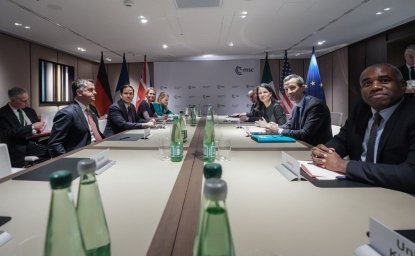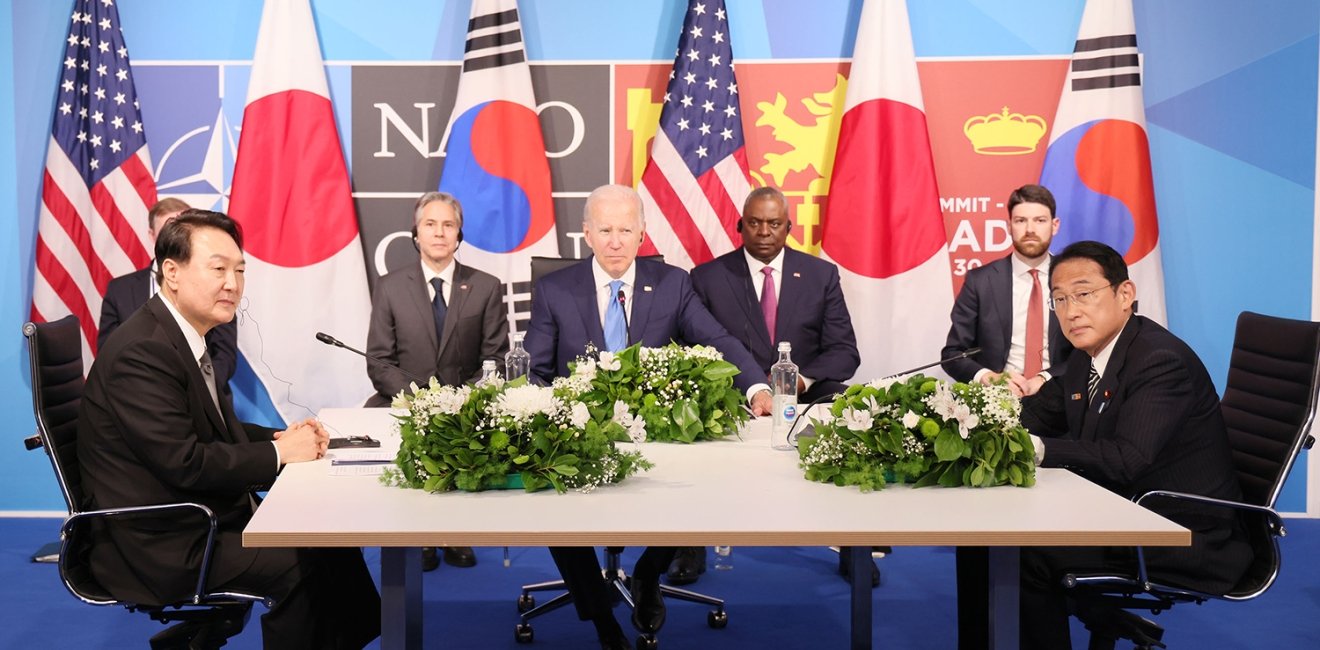The NATO Summit in Madrid on June 29-30 was a triumphant emergence on the world stage for South Korea’s newly elected President Yoon Suk Yeol. This was the first time that a South Korean president had been invited to a NATO summit, and it showed that South Korea and other Asian democracies are being driven closer to European democracies by mutual fears of Russian and Chinese power.
While in Madrid, Yoon and Japanese Prime Minister Fumio Kishida met with President Biden in the first trilateral summit between U.S., South Korean and Japanese leaders since 2017. Following a decision to resume trilateral military exercises, which have not been conducted since December 2017, and a trilateral meeting of U.S.-Japanese-South Korean defense ministers earlier in June, this represents a significant warming in Japanese-Korean ties. That relationship could take another significant step forward if Japan and South Korea agree to enhance intelligence sharing, as suggested by South Korean Foreign Minister Park Jin.
This not to say that the path to really improving Korea-Japan ties is remotely easy; it’s still a very steep climb. A South Korean court is still expected to rule on issues related to forced wartime labor, and Yoon, as a former prosecutor, will not want to jeopardize his political capital by superseding the judicial system. But this is nevertheless a significant start in expanding the trilateral relationship—and in building closer ties with Europe.
The United States gets to highlight the growing closeness between its European and Asian allies, while Yoon gets to make progress on his stated goal of turning South Korea into a “global pivotal state.” Yoon announced that South Korea will establish a diplomatic mission to NATO at its Brussels headquarters. South Korea is the only country out of the four Asian countries invited to the summit that has not yet set up a mission. By setting up a mission, South Korea is committing to more consistent dialogue with the Atlantic Alliance.
South Korea is making clear that it shares a broad range of values with other liberal democracies and that it will work with them to strengthen the rules-based international order. Yoon is not sending weapons to Ukraine, but South Korea has joined international sanctions on Russia and he has pledged $100 million in humanitarian assistance for Ukraine.
South Korea’s improved relationships with Japan and NATO have the potential to bolster its defense against many emerging threats, including cyber-attacks, climate change, supply chain challenges, and North Korea’s growing arsenal of missiles and nuclear weapons.
One of the more significant outcomes in Madrid was NATO issuing a communique that labeled China a “systemic challenge” to the alliance and other countries. This was less blunt than the description of Russia as a “direct threat,” but it was nevertheless tough language that signaled NATO coalescing around the view that China poses a threat to the free world. This is a break from the past, when alliance members could not agree on a common approach toward China.
There is undoubtedly unease in Seoul over how Beijing perceives Yoon’s participation in this summit given NATO’s growing hardline on China. Beijing certainly views this summit with deep suspicion, as representing the emergence of a Cold War style of global alliance to contain China, particularly in light of other developments such as the formation of the AUKUS partnership (Australia-UK-US) and the potential expansion of the Five Eyes intelligence alliance.
The Yoon administration has been trying to lessen Beijing’s concerns by publicly stating that South Korea’s participation does not mean that it will join an international anti-China coalition or that it will become a NATO member. But South Korea is also signaling that is deeply concerned about China’s growing power, its crackdowns on human rights, its unwillingness to enforce sanctions on North Korea as it once did, and its strengthening relationship with Russia. The next question for South Korea is whether it will join the QUAD—a nascent anti-China alliance in the Asia Pacific region.
Also concerned about Japan and South Korea’s attendance at the NATO summit is Russia. Already, two formerly neutral nations, Finland and Sweden, are joining NATO. Now Japan and South Korea, while not joining, are becoming more closely associated with the alliance. South Korea has already become the first Asian country to join NATO’s cyber-defense unit based in Estonia. And Russia has already labeled South Korea an “unfriendly nation” because it joined the sanctions regime against Russia. South Korea’s relationship with Russia, already strained, will continue to worsen.
The concern from South Korea’s perspective is that its growing closeness with Japan and NATO could lead China and Russia to more actively support North Korea. Already China and Russia have been blocking further sanctions on North Korea at the UN since the start of the Ukraine war. North Korea is likely to be one of the big winners from Russia’s invasion of Ukraine. But by expanding ties to Japan and NATO, Yoon is showing North Korea that South Korea has powerful friends in the world.
Overall, Yoon has gotten off to a strong start on his first foreign trip as president. Many challenges and obstacles remain, particularly in rebuilding relations with Japan, which will be met with hostility by many South Korean voters, but he has a great deal to show for his first foreign foray. South Korea is earning newfound respect on the world stage—an important step in expanding the US-ROK alliance beyond the peninsula.
Authors
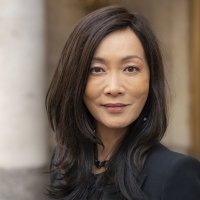


Hyundai Motor-Korea Foundation Center for Korean History and Public Policy
The Center for Korean History and Public Policy was established in 2015 with the generous support of the Hyundai Motor Company and the Korea Foundation to provide a coherent, long-term platform for improving historical understanding of Korea and informing the public policy debate on the Korean peninsula in the United States and beyond. Read more

Explore More
Browse Insights & Analysis
Trump Speaks with Putin in Effort to End Russia-Ukraine War
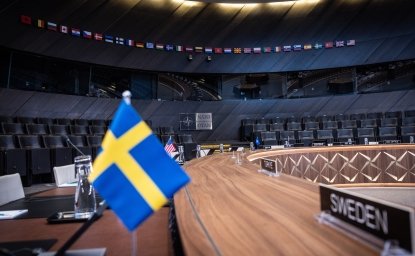
From Partner to Ally: Sweden’s First Year in NATO
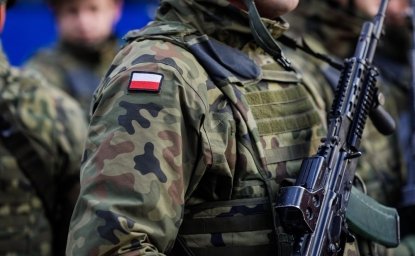
“Security, Europe!”: Poland's Rise as NATO's Defense Spending Leader
